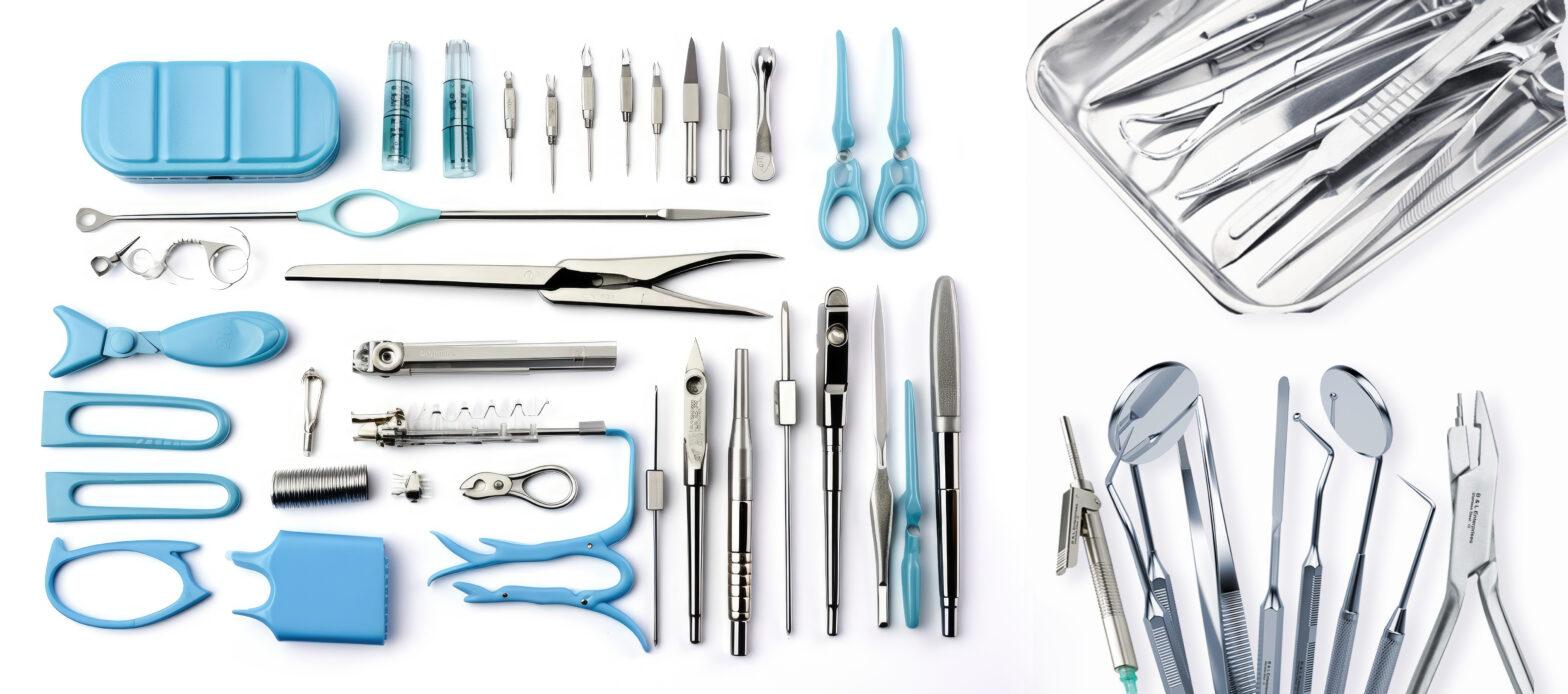Surgical instruments are the backbone of modern medicine. Whether in general surgery or specialized procedures, having reliable, sterile, and high-quality instruments ensures patient safety and successful outcomes. In this article, we explore plastic surgical instruments, their advantages, types, and the role of trusted surgical instruments manufacturers in delivering quality tools.
Introduction: Why Surgical Instruments Matter
From scalpel to forceps, surgical instruments are precision tools designed to perform highly controlled medical tasks. Surgeons depend on these instruments not only for efficacy but also for patient safety. With advancements in medical technology, plastic surgical instruments are gaining popularity alongside traditional stainless steel surgical instruments, offering lightweight alternatives and improved cost-effectiveness.
In this guide, you’ll learn about:
-
The different types of surgical instruments
-
Key benefits of plastic instruments
-
How to choose the right surgical instruments suppliers
-
Safety considerations in medical procedures
Understanding Surgical Instruments
Surgical instruments are classified based on their use in medical procedures. Broadly, they include:
1. Cutting & Dissecting Instruments
These include scalpels, scissors, and curettes designed to cut or separate tissues. While most are traditionally made of stainless steel, plastic surgical instruments are increasingly used in disposable or short-term procedures.
2. Grasping & Holding Instruments
Forceps, needle holders, and clamps fall under this category. Plastic versions are ideal for procedures where sterility and single-use are critical.
3. Retracting & Exposing Instruments
Retractors help maintain visibility in the surgical field. Lightweight plastic retractors reduce hand fatigue for surgeons during long procedures.
4. Suturing & Stapling Instruments
Needle holders and staplers are essential for closing wounds. High-quality plastic tools from reputable surgical instruments manufacturers ensure precision and minimize tissue trauma.
Plastic vs. Stainless Steel Surgical Instruments
Plastic Surgical Instruments:
-
Lightweight and easier to handle
-
Often disposable, reducing cross-contamination
-
Cost-effective for hospitals and clinics
-
Suitable for minor procedures or outpatient surgeries
Stainless Steel Surgical Instruments:
-
Highly durable and reusable
-
Resistant to corrosion and high-temperature sterilization
-
Preferred for complex or long-term surgical procedures
By choosing the right mix of plastic and stainless steel instruments, hospitals can optimize both efficiency and patient safety.
Selecting the Right Surgical Instruments Manufacturer
When sourcing general surgery instruments, quality and reliability are paramount. Look for manufacturers who:
-
Comply with ISO and CE certifications
-
Offer a wide range of surgical instruments
-
Provide post-sales support and warranty
-
Follow strict sterilization and quality assurance protocols
Advantages of Plastic Surgical Instruments
-
Enhanced Safety: Single-use instruments minimize infection risk.
-
Cost-Effectiveness: Reduces cleaning and sterilization costs.
-
Ergonomic Design: Lightweight instruments reduce fatigue.
-
Environmental Considerations: Many are recyclable or biodegradable.
Plastic instruments are particularly popular in outpatient surgeries, dental clinics, and veterinary medicine.
Case Study: Successful Integration of Plastic Instruments in Hospitals
Hospital X implemented plastic surgical instruments in their outpatient procedures. Over 12 months, they observed:
-
30% reduction in instrument sterilization costs
-
25% faster operation setup times
-
No increase in infection rates
This demonstrates that, when used appropriately, plastic surgical instruments can match stainless steel in safety and efficiency.
Common FAQs About Surgical Instruments
Q1: Are plastic surgical instruments safe for all surgeries?
Plastic instruments are ideal for minor or short-term procedures but may not be suitable for high-stress operations requiring extreme durability.
Q2: How should surgical instruments be sterilized?
Stainless steel instruments require autoclaving, while many plastic instruments are pre-sterilized and disposable.
Q3: Where can I buy high-quality surgical instruments?
Trusted surgical instruments suppliers and certified surgical instruments manufacturers ensure quality, safety, and regulatory compliance.
Pros and Cons of Plastic Surgical Instruments
| Pros | Cons |
| Lightweight and ergonomic | Less durable than stainless steel |
| Cost-effective | Limited reuse potential |
| Reduce infection risk | Not suitable for heavy-duty surgeries |
| Quick setup | Environmental concerns if not recycled |
Conclusion: Choosing the Best Surgical Instruments
The choice between plastic and stainless steel surgical instruments depends on procedure type, budget, and safety requirements. Plastic surgical instruments are transforming outpatient and minor surgeries, while stainless steel remains indispensable for complex procedures.
Investing in high-quality instruments from trusted surgical instruments manufacturers ensures efficiency, safety, and better patient outcomes.
Call to Action: Share this article with your colleagues, comment with your experiences using plastic or stainless steel surgical instruments, or explore reputable surgical instruments suppliers to upgrade your medical toolkit today.

Join our community to interact with posts!